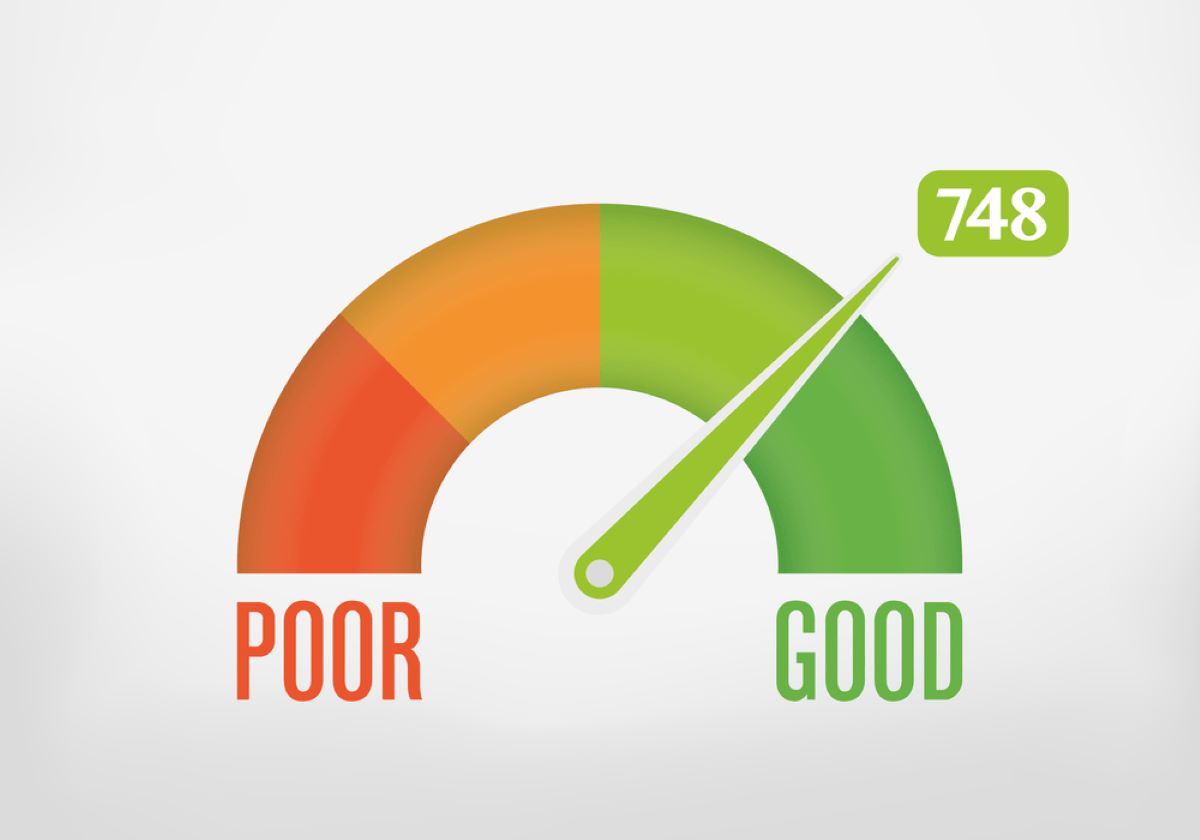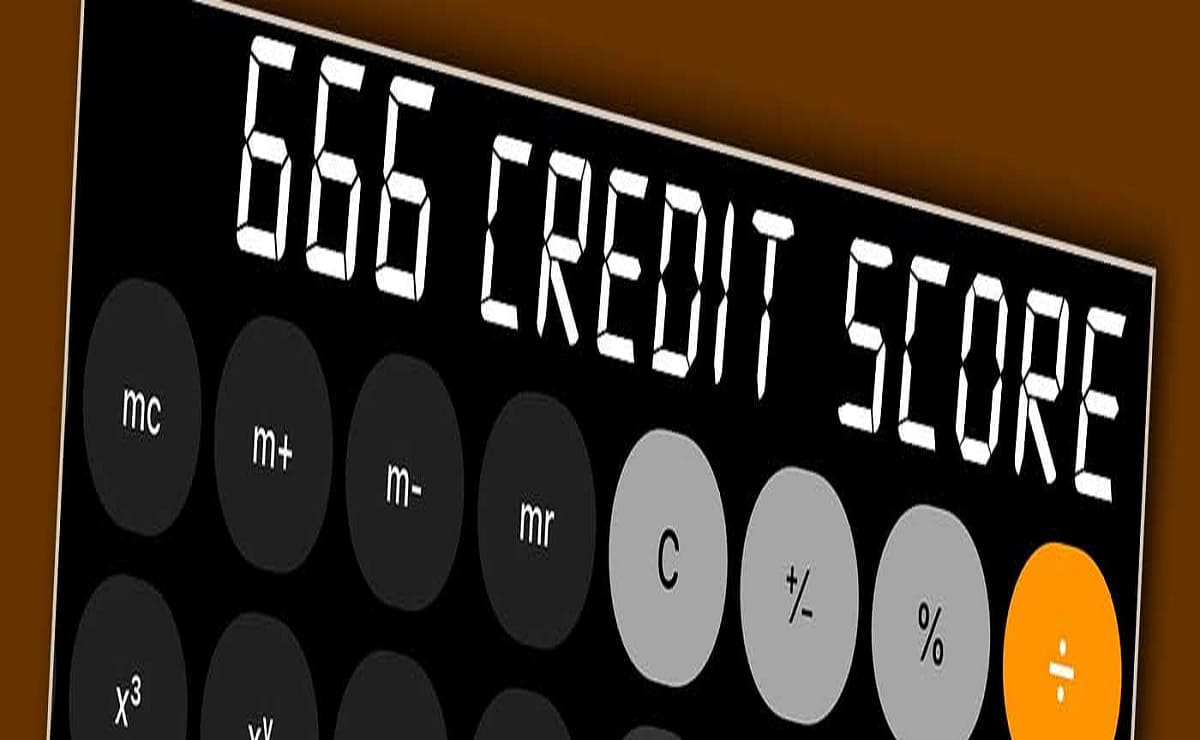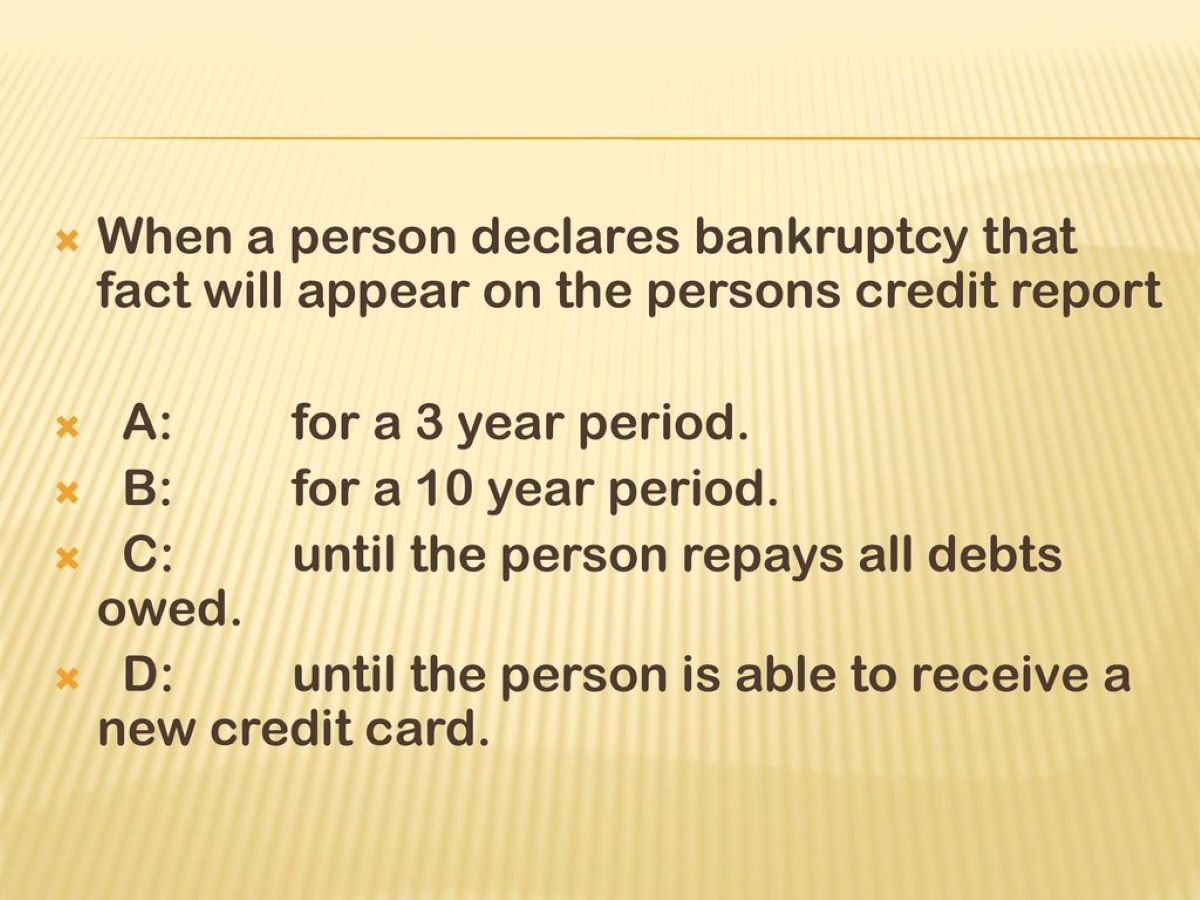

Finance
What Is A 675 Credit Score
Modified: March 4, 2024
Learn the importance of a 675 credit score in the world of finance and how it can impact your financial future. Discover tips to improve your credit score and achieve your financial goals.
(Many of the links in this article redirect to a specific reviewed product. Your purchase of these products through affiliate links helps to generate commission for LiveWell, at no extra cost. Learn more)
Table of Contents
Introduction
Welcome to the world of credit scores! If you’ve ever applied for a loan or a credit card, you’ve probably heard the term “credit score” mentioned. Your credit score plays a crucial role in determining your creditworthiness and the interest rates you’ll be offered.
But what exactly is a credit score? In simple terms, it is a three-digit number that represents your creditworthiness based on your financial history. Lenders use this score to assess the risk of lending to you and to determine the terms of the credit they offer.
One common credit scoring model used by many lenders is the FICO credit score. This score ranges from 300 to 850 and is based on various factors such as payment history, credit utilization, length of credit history, credit mix, and recent credit inquiries.
In this article, we will delve into the world of credit scores and focus specifically on a credit score of 675. We will explore what it means to have a 675 credit score, the factors that affect this score, the pros and cons, and tips for improving it. Whether you currently have a 675 credit score or aspire to achieve one, this article will provide you with valuable insights.
What is a Credit Score?
A credit score is a numerical representation of your creditworthiness. It is a tool used by lenders to assess the risk of lending you money or extending credit. The higher your credit score, the more likely you are to be approved for loans and credit cards with favorable terms and low-interest rates.
The credit scoring system is designed to evaluate your financial history and predict your future credit behavior. It takes into account various factors such as your payment history, the amount of debt you owe, the length of your credit history, the types of accounts you have, and any recent credit inquiries.
One popular credit scoring model is the FICO score, which was developed by the Fair Isaac Corporation. FICO scores range from 300 to 850, with higher scores indicating better creditworthiness. Here is a breakdown of the FICO credit score ranges:
- Poor: 300-579
- Fair: 580-669
- Good: 670-739
- Very Good: 740-799
- Exceptional: 800-850
It’s important to note that each lender may have its own criteria for evaluating credit scores. While FICO scores are widely used, other credit scoring models, such as VantageScore, may also be utilized in the decision-making process.
Having a good credit score is essential for financial success. It not only affects your ability to secure loans or credit cards but also impacts the interest rates you’ll be offered. A higher credit score can save you thousands of dollars in interest over time, while a lower score may lead to higher borrowing costs and limited access to credit.
Understanding the FICO Credit Score Range
The FICO credit score range is a widely used system for evaluating creditworthiness. Understanding how this range is broken down can help you gauge where your own credit score falls and what it means for your financial health.
The FICO credit score ranges from 300 to 850, with higher scores indicating better creditworthiness. Here is a breakdown of the FICO credit score ranges:
- Poor (300-579): If your score falls within this range, lenders may consider you a high-risk borrower. You may have difficulty obtaining credit or may be offered loans with high-interest rates and less favorable terms.
- Fair (580-669): A score in this range suggests a higher risk to lenders. While you may still qualify for credit, you may be offered loans with higher interest rates and less favorable terms.
- Good (670-739): Falling into this range indicates a moderate level of creditworthiness. You are likely to qualify for loans and credit cards, although interest rates and terms may vary.
- Very Good (740-799): With a score in this range, you are considered a low risk to lenders. You can expect to have access to a wide range of credit options, including loans and credit cards, with favorable interest rates and terms.
- Exceptional (800-850): This is the highest range on the FICO credit score scale. If your score falls within this range, you are considered an excellent borrower. You are likely to be offered the best interest rates and terms on loans and credit cards.
It’s important to note that the FICO credit score is based on several factors, with varying levels of importance. These factors include payment history, credit utilization, length of credit history, credit mix, and recent credit inquiries. Understanding how these factors impact your credit score can help you make informed financial decisions and take steps to improve your creditworthiness.
Remember, your credit score is not fixed and can change over time based on your financial behavior. By managing your credit responsibly, making timely payments, keeping your credit utilization low, and practicing good financial habits, you can work towards improving your credit score and achieving better financial opportunities.
Factors Affecting Credit Scores
Several key factors contribute to the calculation of your credit score. Understanding these factors can provide insight into how your financial decisions and behaviors impact your creditworthiness. Here are the main factors that can affect your credit score:
- Payment History: Your payment history is one of the most significant factors influencing your credit score. Lenders want to see a consistent track record of on-time payments. Late payments, missed payments, and accounts in collections can have a negative impact on your credit score.
- Utilization Rate: The credit utilization rate measures the amount of available credit you are currently using. A lower utilization rate indicates responsible credit management and can positively impact your credit score. It is generally recommended to keep your utilization rate below 30% of your total credit limit.
- Length of Credit History: The length of your credit history plays a role in determining your credit score. Generally, a longer credit history demonstrates your ability to manage credit over time, which can positively influence your score. If you’re just starting to build your credit, it may take time to establish a strong credit history.
- Credit Mix: Having a diverse mix of credit accounts, such as credit cards, a mortgage, auto loans, or student loans, can have a positive impact on your credit score. This indicates your ability to manage different types of credit responsibly.
- Recent Credit Inquiries: When you apply for new credit, such as a loan or credit card, a hard inquiry is added to your credit report. Multiple inquiries within a short period can negatively impact your credit score. It is essential to be selective when applying for new credit to avoid potential negative effects.
It’s important to note that these factors carry different levels of importance depending on your credit profile and history. Additionally, other factors, such as public records (bankruptcies, tax liens) and the age of your accounts, can also influence your credit score.
By understanding the factors that affect your credit score, you can make informed decisions and take steps to improve your creditworthiness. Responsible credit management, timely payments, and keeping your credit utilization low are key strategies for maintaining a healthy credit score.
What Does a 675 Credit Score Mean?
A credit score of 675 falls within the “Good” range on the FICO credit score scale. While it indicates a decent level of creditworthiness, there is still room for improvement to reach higher credit tiers. Let’s explore what having a 675 credit score means for your financial standing:
Likelihood of Loan Approval: With a 675 credit score, you have a moderate chance of loan approval. Lenders may consider you a relatively low risk and are likely to offer you credit options, including loans and credit cards. However, keep in mind that approval and interest rates may vary depending on the specific lender and your overall credit profile.
Interest Rates: The interest rates you’re offered will depend on various factors, including your credit score. With a 675 credit score, you can generally expect to be offered competitive interest rates, although not the lowest available. It’s still important to shop around and compare offers to ensure you’re getting the best terms possible.
Credit Limit: While a 675 credit score demonstrates good creditworthiness, it may not result in the highest credit limits. Lenders consider factors beyond your credit score when determining credit limits, such as income and debt-to-income ratio. Your credit limit may increase as you establish a longer and more positive credit history.
Opportunities for Improvement: While a 675 credit score is considered good, there is always room for improvement. By continuing to practice responsible credit management, such as paying bills on time, keeping credit utilization low, and avoiding excessive credit inquiries, you can work towards increasing your credit score over time.
Access to Certain Credit Products: With a 675 credit score, you’ll likely have access to a variety of credit products, including personal loans, auto loans, and credit cards. However, you may not qualify for certain premium rewards credit cards or receive the most favorable terms and benefits associated with them.
It’s important to remember that a credit score is just one aspect of your overall financial health. While a 675 credit score shows responsible credit management, it’s essential to continue practicing good financial habits and striving for an even higher score. This will open up more opportunities for favorable loan terms, lower interest rates, and increased access to credit in the future.
Pros and Cons of a 675 Credit Score
Having a 675 credit score comes with its own set of advantages and disadvantages. Let’s explore the pros and cons of having a credit score in the “Good” range:
Pros:
- Access to Credit: With a 675 credit score, you are likely to have access to a variety of credit options, including loans and credit cards. This can provide financial flexibility and the ability to handle unexpected expenses.
- Favorable Interest Rates: While not the best available, a 675 credit score is generally considered good enough to qualify for competitive interest rates on loans and credit cards. This can save you money over time by reducing the amount of interest you’ll need to pay.
- Improved Loan Approval Odds: Lenders view a 675 credit score as indicative of responsible credit behavior, making you a lower risk borrower. This can increase your chances of loan approval, although approval is still dependent on other factors such as income and employment stability.
- Opportunities for Credit Limit Increases: Maintaining a good credit score opens doors for credit limit increases on existing credit cards. With a higher credit limit, you’ll have more purchasing power and can potentially improve your credit utilization ratio.
- Enhanced Rental Opportunities: A good credit score can also help you secure rental properties. Landlords often check credit scores to assess a potential tenant’s financial responsibility. A 675 credit score demonstrates reliability and may give you an advantage in the rental market.
Cons:
- Not the Best Rates and Terms: While a 675 credit score is considered good, it may not qualify you for the most favorable rates and terms available. Borrowers with higher credit scores may receive better deals on loans and credit cards.
- Limitations on Premium Credit Products: Some premium credit cards and financial products may have stringent eligibility requirements. With a 675 credit score, you may not qualify for the highest-tier credit cards or exclusive perks associated with them.
- Potential for Credit Denial: While a 675 credit score increases your chances of loan approval, it does not guarantee it. Other factors like income, employment history, and overall debt load will also be considered by lenders. It’s important to maintain a strong financial profile to maximize approval odds.
- Room for Improvement: Although a 675 credit score is good, there is always room for improvement. Working towards an even higher credit score can open up more opportunities for better rates, improved terms, and increased access to credit in the future.
Overall, a 675 credit score puts you in a relatively favorable position. It shows responsible credit behavior and provides access to credit options. However, it’s important to continue building and maintaining good credit habits to reach higher credit tiers and enjoy more benefits in the long run.
Tips for Improving a 675 Credit Score
While having a 675 credit score is considered good, there’s always room for improvement. By implementing these tips, you can work towards boosting your credit score even further:
- Make Payments on Time: Consistently paying your bills on time is one of the most effective ways to improve your credit score. Late payments can have a significant negative impact, so prioritize timely payments to all your creditors.
- Reduce Credit Utilization: Aim to keep your credit utilization ratio below 30% of your available credit. Paying off outstanding balances and avoiding maxing out credit cards can help lower your utilization rate and positively impact your credit score.
- Monitor Your Credit: Regularly review your credit reports from the major credit bureaus (Equifax, Experian, and TransUnion) to ensure there are no errors or fraudulent activity. Dispute any inaccuracies you find to maintain the accuracy of your credit history.
- Limit New Credit Applications: Avoid making multiple credit applications within a short period as it can indicate financial instability and result in hard inquiries on your credit report. Instead, be selective and apply for credit only when necessary.
- Diversify Your Credit Mix: If you primarily have credit card debt, consider diversifying your credit mix by adding other types of loans such as a mortgage or an auto loan. A varied credit portfolio can demonstrate responsible credit management to lenders.
- Keep Old Accounts Open: Length of credit history is an important factor in calculating your credit score. Instead of closing old credit card accounts, keep them open and maintain low balances. This shows a longer credit history and responsible credit utilization.
- Utilize Credit-Building Tools: If you’re new to credit or have a limited credit history, consider utilizing credit-building tools such as secured credit cards or becoming an authorized user on someone else’s credit card. These options can help establish and build positive credit history.
- Practice Patience: Improving your credit score takes time and consistent effort. Be patient and continue practicing good credit habits. Over time, your responsible financial behavior will be reflected in an improved credit score.
Remember, every individual’s credit profile is unique, and what works for one person may not work for another. It’s essential to tailor these tips to fit your specific financial situation and goals. By taking proactive steps, you can steadily improve your credit score and gain access to more favorable credit terms and opportunities.
How to Monitor and Manage Your Credit Score
Monitoring and managing your credit score is crucial for maintaining good financial health. Here are some steps you can take to effectively monitor and manage your credit score:
- Check Your Credit Reports Regularly: Obtain your credit reports from the major credit bureaus – Equifax, Experian, and TransUnion. Review them for accuracy, ensuring that all the information is up-to-date and correct. Look for any errors or fraudulent activity that could be negatively impacting your credit score.
- Monitor Your Credit Score: Use reputable credit monitoring tools or services to keep a close eye on your credit score. Many companies offer free access to credit score tracking, allowing you to regularly monitor changes and spot any areas for improvement.
- Set Up Payment Reminders: Late payments can harm your credit score. Avoid the risks by setting up payment reminders or automatic payments for your bills. This will ensure that you never miss a due date and maintain a positive payment history.
- Decrease Credit Utilization: Aim to keep your credit utilization ratio below 30%. Pay down existing debt and avoid maxing out credit cards. Lowering your credit utilization can positively impact your credit score and demonstrate responsible credit management.
- Avoid Opening Unnecessary Credit Accounts: Each time you apply for new credit, it results in a hard inquiry on your credit report and can temporarily lower your credit score. Be selective and cautious when considering opening new credit accounts to avoid unnecessary inquiries.
- Keep Your Credit Accounts Active: Closing old credit card accounts can potentially shorten your credit history and negatively impact your credit score. Instead, keep those accounts active by making occasional small purchases and paying them off in full.
- Manage Your Debt Responsibly: Strive to pay off debt in a timely manner. Focus on high-interest debts first while making minimum payments on other accounts. This will help reduce your overall debt load and improve your credit utilization ratio.
- Be Mindful of Credit Inquiries: Limit the number of credit inquiries you make within a short period. A high number of inquiries can indicate financial instability and may lower your credit score. Only apply for credit when necessary.
- Practice Good Financial Habits: Maintaining good financial habits, such as budgeting, saving, and avoiding excessive debt, can positively impact your credit score. Responsible financial management goes hand in hand with maintaining a healthy credit profile.
By consistently monitoring your credit score and actively managing your credit habits, you can stay on top of your financial well-being and ensure that your credit score is in good standing. Remember, improving and maintaining a good credit score requires patience and discipline, but the long-term financial benefits are well worth the effort.
Conclusion
Understanding and managing your credit score is essential for financial success. A credit score of 675 falls within the “Good” range on the FICO credit score scale, indicating decent creditworthiness. While it may not qualify you for the best rates and terms available, it still opens doors to various credit opportunities.
By consistently practicing responsible credit habits, such as making timely payments, keeping credit utilization low, and monitoring your credit reports, you can work towards improving your credit score over time. This can result in better loan approval odds, competitive interest rates, and increased access to credit options in the future.
Remember, your credit score is not fixed and can change based on your financial behavior. Regularly monitoring your credit score and taking proactive steps to manage it will allow you to track progress, identify areas for improvement, and ensure the accuracy of your credit history.
Ultimately, a good credit score is a valuable asset that can provide financial security and open doors to better opportunities. By implementing the tips and strategies discussed in this article, you can set yourself on the path to achieving a strong credit score, ultimately helping you achieve your financial goals.














